Key Information
CPD Hours: 16 hours
Course Length: Four weeks
Course Format: A mixture of weekly pre-recorded webinars (which can be reviewed throughout the course), live weekly Q&A sessions with the tutor, self-assessment exercises, supplementary reading material and tutor-moderated online discussion forums
Enrol Now
Alternatively you can download and email using our Registration Form
Course Information
- An introduction to anthrozoology and its relevance to the veterinary profession
- The role of culture and other social institutions in shaping beliefs, attitudes and practices
- Understanding and negotiating cultural differences
- Case studies – cultural norms versus individual experiences
- Strategies for human behaviour change
Have you ever wondered why some clients go to great lengths to provide the best care for their animals while others do only the bare minimum? Do you despair when clients claim to love their animals while simultaneously engaging in harmful practices such as over-feeding obese pets? Have you experienced medical conditions deteriorating because clients do not adhere to an agreed treatment plan? Would you like to understand some of the underlying factors that might be influencing clients’ diverse and at times conflicting attitudes and practices?
Anthrozoology is a rapidly growing multi-disciplinary field concerned with understanding the diverse ways in which humans think about and interact with other animals. Through a combined focus on the impacts of culture on human perceptions and behaviours towards other animals, and the experiences of individuals (which can challenge or affirm cultural norms), anthrozoology can help shed light on client beliefs and practices. Anthrozoological knowledge can also offer strategic insights that could be employed by veterinary staff to improve outcomes for the animals in their care.
This course aims to provide you with an introduction to anthrozoology and to outline its relevance to the veterinary profession. Through the use of illustrative case studies you will be introduced to some of the diverse ways in which culture shapes beliefs and practices relating to different animals, along with some examples where anthrozoological knowledge has been implemented to change human behaviours in relation to animals.
Why do this course?
Dealing with clients is a daily reality for most members of the veterinary team. The beliefs and practices of clients can significantly impact the welfare of the animals in their care, their willingness to seek (and pay for) veterinary help, and the success or failure of treatment plans. This course will provide you with relevant knowledge and skills to help you better understand some of the reasons behind the behaviours and decisions made by clients.
The webinars for this course will be pre-recorded and can be viewed as recorded versions throughout the course. A live Q&A session with the tutor will run on the following dates at 1.30pm London time.
Live Q&A dates:
Friday 24th April
Friday 1st May
Friday 8th May
Friday 15th May
Samantha Hurn , PhD
Associate Professor and Programme Director MA and PhD Anthrozoology
University of Exeter

